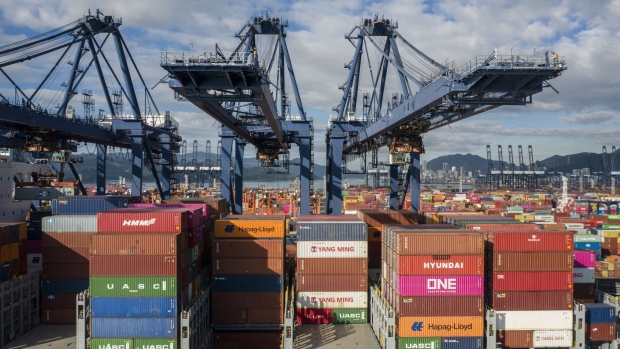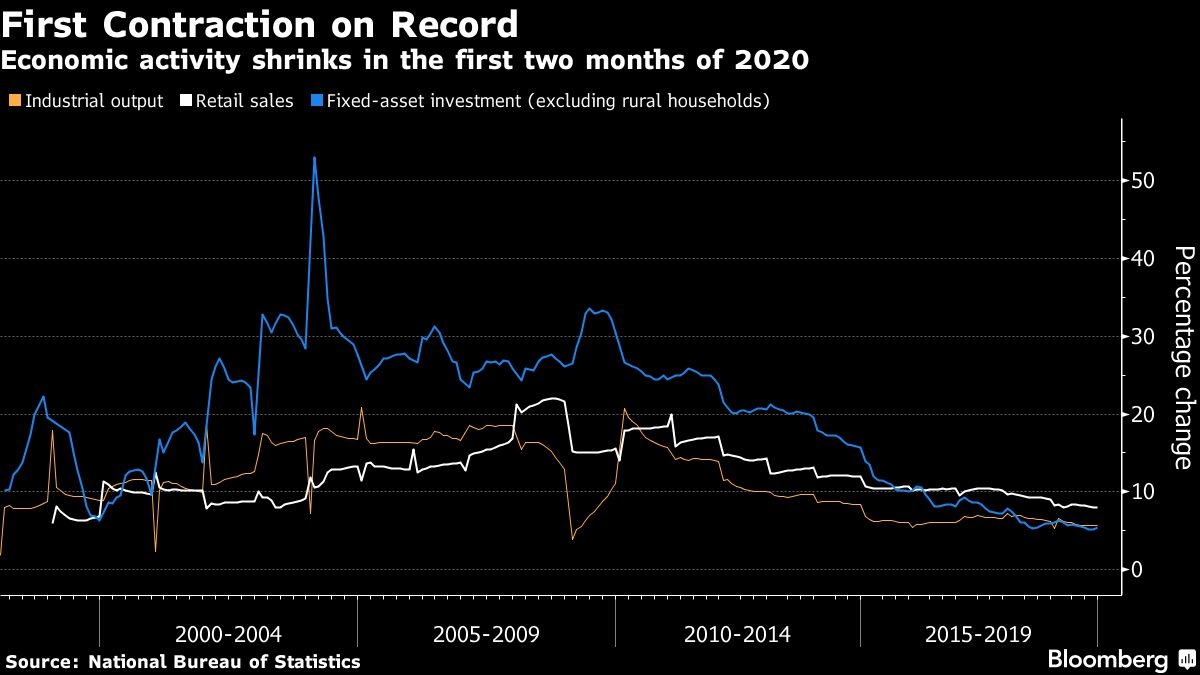Mar 15, 2020
China's manufacturing, retail, investment suffer historic slump
Bloomberg News

China suffered an even deeper slump than analysts feared at the start of the year as the coronavirus shuttered factories, shops and restaurants across the nation, underscoring the economic fallout now facing the global economy as the virus spreads around the world.
Industrial output plunged 13.5 per cent in January and February from a year earlier, versus a median estimate for a three per cent contraction. Retail sales fell 20.5 per cent in the period, compared to a projected four per cent fall. Fixed-asset investment dropped 24.5 per cent, versus a forecast two per cent decline. The unemployment rate jumped to 6.2 per cent, the highest on record.
Gross domestic product is now all but certain to contract in the first quarter compared to the same period last year -- the first time that has happened since comparable data begins in 1989.
“COVID-19 made the economy stop, from factories to spending,” said Iris Pang, ING Bank NV in Hong Kong. “As the coronavirus spread to almost everywhere, global demand and global supply chains will take a hit and will feedback to China’s manufacturers and exporters in March and April.”
The outbreak of deadly viral pneumonia in Wuhan dramatically worsened in January, prompting China to lockdown Hubei province, extend holidays and restrict travel and business across the country. That brought much of the nation’s economy activity to a halt in February, undercutting a stabilization seen in December.

While there are increasing signs that companies and people are getting back to work in March, the economy is still not back to normal.
Even as governments in China and some other Asian nations look to be getting their outbreaks under control, the coronavirus is now spreading rapidly in Europe, the U.S. and other parts of the world. That will likely hit demand for Chinese exports, extending the damage to firms and the economy.
“China is bottoming out. But it’s not going to be a V-shaped rebound,” said Raymond Yeung, chief China economist at Australia & New Zealand Banking Group in Hong Kong.
Stimulus policy in response to the virus has so far been targeted and measured, reflecting “an intention to keep some ammunition in case the situation worsens with global outbreak still evolving,” Chang Jian, chief China economist at Barclays Capital Asia Ltd in Hong Kong, wrote in a report before the data was announced. However, “reasonable growth will still be required to ensure employment, and we think policy will shift to boosting domestic demand for a speedier recovery.”
The People’s Bank of China bank acted again on Friday to support the economy, providing banks more money to lend by cutting the amount of cash they must place in reserve at the central bank. That takes effect Monday.
The data is released on a combined basis to account for the normal seasonal volatility around the Lunar New Year holiday.
--With assistance from Tomoko Sato.

